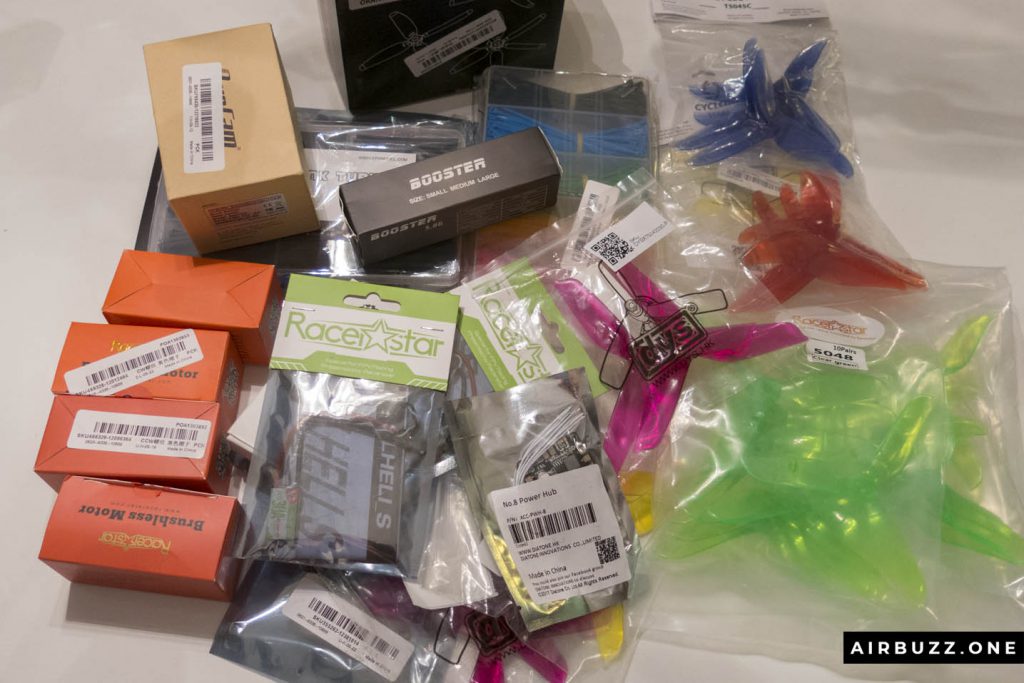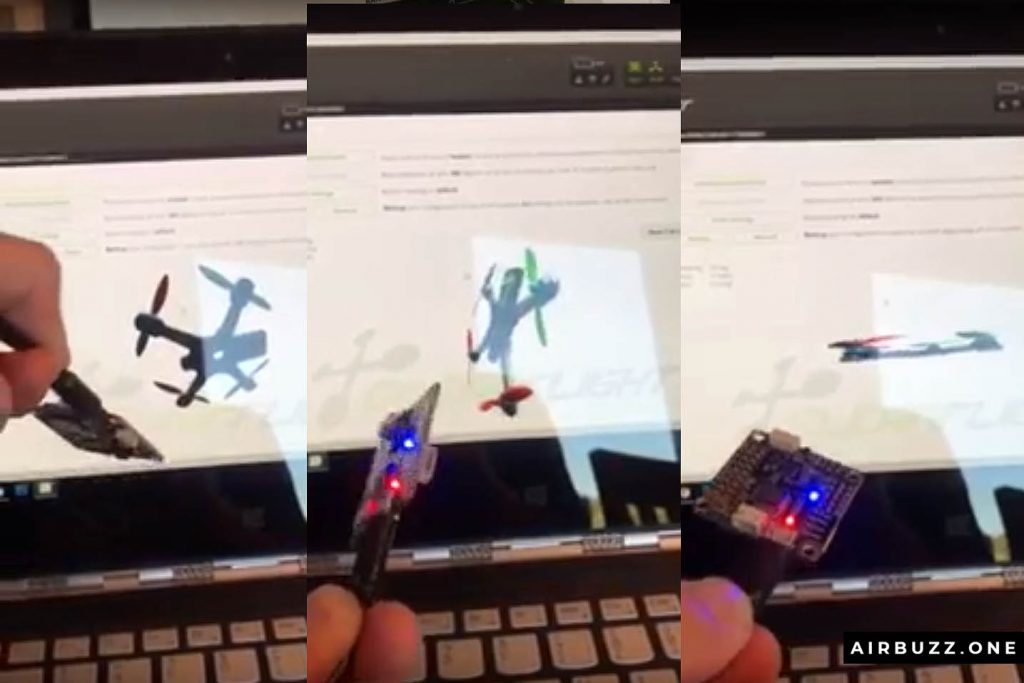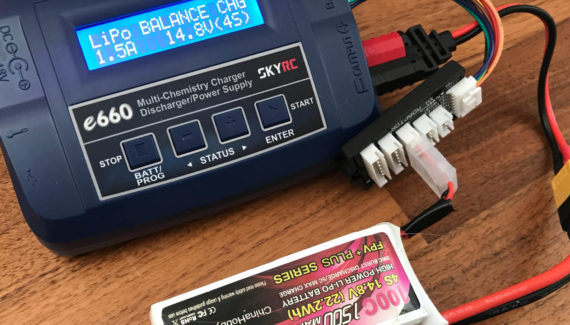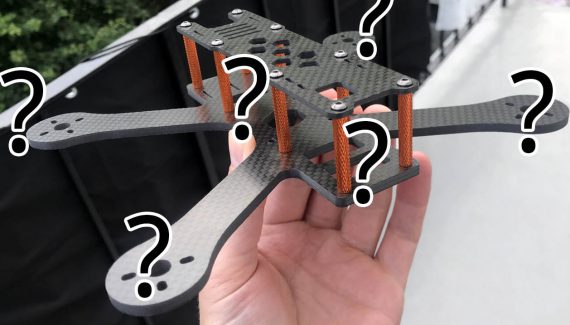Getting started with FPV droning the right way
If you read my previous, and first, article about my FPV project you already know I’m planning to build my first FPV racing drone. The first article was called ‘I have decided to build my first FPV Racing Drone!’, so check it out if you want. I the article I explain that even if I have lots of experience with flying my camera drone for photography, I have no experience whatsoever in building my own FPV drone.
I’m curious on how it will turn out in the end. Will I manage to build my own drone? Will it fly? Will I crash it instantly?
I’m also keen on starting with this new branch of my drone hobby the right way with the right approach. So far my plan is:
- Watch drone building videos on YouTube to learn.
- Make a list of components I need and order the parts. You find the list in my previous post.
- Order a radio transmitter controller (Tx) that can be hooked up with a PC.
- Buy/Download a drone simulator and start learn to fly.
While I ordered most of the components from Banggood which takes a while to receive in the mail, I ordered the radio from a local online store with drone equipment to get it faster before the holidays.
This is article 2 of 3 so far in this drone building series:
1. I have decided to build my first FPV Racing Drone!
2. Starting the right way. (this post)
3. Assembling and finishing the drone!
On the right track
It seems that my initial thoughts were correct. After watching Mr Steele’s video called Getting into FPV, it seems that ordering parts for a 5-inch drone, buy a radio, and download a simulator is a good way to start.
I received my white FrSky Taranis QX 7 radio in the mail just a few days before I left for the summer holiday. Perfect! It is a cool product perfect for beginners like me. Not too expensive and with more than enough functionality. I originally wanted the new and cool looking FrSky X-lite, but since I had to wait for it I went for the QX7 instead so I could begin my training faster. A FrSky Taranis QX 7 review will come later when I have tested the product.
It didn’t come with a transport bag so I had to take the while box in with me on holidays. I later ordered a transport and store bag like this.
I then began researching good drone simulators to install on my PC.
Read: DJI Tello Review – Is it the perfect beginner drone?
List of drone simulators I found
Starting with simulators while waiting for the rest of the parts and building of the drone is a good way to practice
Velocidrone – one-time payment
Liftoff – one-time payment. Good graphics!
DRL Racing Simulator – one-time payment
RotorRush – membership, pay per month. Very easy to fly… more like a game
FPV FreeRider – one-time payment
Right now have I bought and tried VelociDrone since it seems that this is the simulator most of the professional FPV pilots recommend. It has great physics but doesn’t look as sharp as many of the other programs.
I will try some of the other simulators later. The prices on all the simulators are in fact surprisingly low.
Mailbox full of the first batch of components!
My holiday this year was divided into two parts. The first half was spent on our my cabin in the mountains and in the second part we traveled to Spain. In the mountains, I could fly my DJI Mavic Pro, but I didn’t bring the drone to Spain. I have heard there are very strict drone regulations there.
Anyway…
When we came home in between my mailbox was full of ordered stuff. It was really fun to open all the packages.
I have received a lot of parts, but not everything. I now have a bunch of propellers, the antenna, FC, PDB and other tools I need. I constantly find new stuff I need since this is my very first build… I tend to look at different YouTube build videos and people does things differently. For instance, nylon standoff screws are important for building the stack of components in the middle of the drone frame. It seems logical now, but I had forgotten it during the first order. I ordered a pack of white and black once.

Lots of exiting new drone components!
Even if I still wait for some of the parts like the rest of the ESC’s, I had to do a quick test assembly of some of the components. Here is the DH210 V3 Freestyle Frame with orange stand-off’s, PDB on nylon screws, orange Racerstar BR2205 motors and red 5″ propellers. What do you think?

Drone with red props with orange motors, camera and standoffs.
First-time check of the FC
It is apparently a good idea to check the Flight Controller (FC) board before you start the build.
It can be connected to the PC with a micro USB cable. It was really easy to use the software BetaflightConfigurator.Pro. There were two Chrome extensions with similar names, CleanFlight and Beta flight but none of them works anymore. Use the software from the link above. My FC is called OMNIBUS Betaflight F3, so it works best with Betaflight anyway.
After installation, I started the app, connected the micro USB end to the FC board and the ordinary USB end in the PC. I pressed Connect (green button on the top right corner) in the Betaflight program and the board woke up with two lights. It is important to see that it is not dead.
I then checked that the sensors worked by moving the board. It was fun to see that the heart of my future small self-build drone seems to work.
Then you can upload/flash new firmware to the FC, but please check other YouTube videos and instructions on that. It is possible to ruin the whole component.
If it acts funny afterward, lay the FC on a flat surface and hit Calibrate accelerometer. I will do this when the drone is finished as well since it is easier to make the drone, rather than the board, stay safe and still on a flat surface.
In the next article, I will list up the first steps to actually assemble the parts and give you a good list of excellent YouTubers you should follow. These guys have thought me a lot.
Do you are in the process of building your own first drone? Let me know in the comment section. I would love to hear about it and if you have a website like mine.
Updates / Revisions:
22.08.18 – Updated the text on Betaflight Configurator and link to the software after I learned that the Chrome extensions don’t work anymore.






2 Comments
Hey, that’s a very cool article!
I never built a drone before but the idea is making it’s way in my mind 🙂
I have some background in audio electronics (guitar pedals, cables, and some custom-made devices to control sound), do you think I could make the jump easily?
It has a nice layer of computer programming that I would enjoy in addition to the rest :p
Thanks a lot!
Thanks for the comment! I absolutely think drone building is for everyone with just a small interest in at least learning something new. 🙂 I started from scratch and have thought myself soldering and electronics quite fast. There are a lot of forums with cool guys that can help out. I especially like the Newbie section at Quadcopterforum.
With your background I think you will do just fine. Andreas